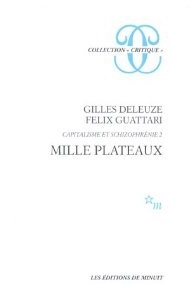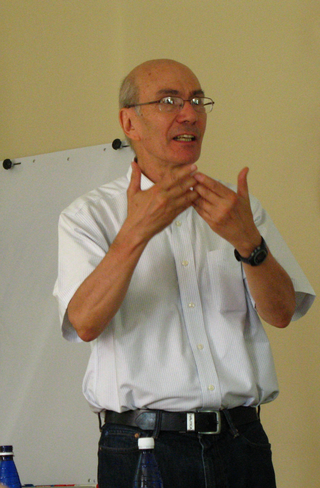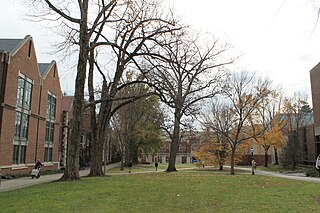Films
After moving to New York, DeLanda created several experimental films between 1975 and 1982, some as part of an undergraduate coursework at the School of Visual Arts. While at SVA, DeLanda studied under video artist Joan Braderman; they were subsequently married in 1980 and collaborated on several works (including Braderman's Joan Does Dynasty [1986], DeLanda's Raw Nerves [1980] and Ismism [1979]) before divorcing at an indeterminate point.
Influenced by the No Wave movement, DeLanda's Super 8 and 16mm films also served as methodical, theory-based approaches to the form. [11] He pulled them from circulation after the original negatives were lost; in 2011, Anthology Film Archives restored and reissued them.
Cited by filmmaker Nick Zedd in his Cinema of Transgression Manifesto, DeLanda associated with many of the experimental filmmakers of this New York based-movement. In 2010, he appeared in Céline Danhier's retrospective documentary Blank City. [12] Much of his oeuvre was inspired by his nascent interest in continental philosophy and critical theory; one of his best known films is Raw Nerves: A Lacanian Thriller (1980).
Having moved on to the nondeterministic synthesis of Baudrillardian and Deleuzian theory, command and control techniques, and materialistic concerns of complex systems and artificial life (including cellular automata) that would comprise "Policing the Spectrum" (1986) and War in the Age of Intelligent Machines (1992), DeLanda had largely eschewed by the mid-1980s his interests in "post-Freudian ideas of the unconscious... as well as any interest in film theory." [11]
The following outline is provided as an overview of and topical guide to critical theory:
Materialism is a form of philosophical monism which holds that matter is the fundamental substance in nature, and that all things, including mental states and consciousness, are results of material interactions of material things. According to philosophical materialism, mind and consciousness are by-products or epiphenomena of material processes, without which they cannot exist. Materialism directly contrasts with idealism, according to which consciousness is the fundamental substance of nature.

Patricia Smith Churchland is a Canadian-American analytic philosopher noted for her contributions to neurophilosophy and the philosophy of mind. She is UC President's Professor of Philosophy Emerita at the University of California, San Diego (UCSD), where she has taught since 1984. She has also held an adjunct professorship at the Salk Institute for Biological Studies since 1989. She is a member of the Board of Trustees Moscow Center for Consciousness Studies of Philosophy Department, Moscow State University. In 2015, she was elected a Fellow of the American Academy of Arts & Sciences. Educated at the University of British Columbia, the University of Pittsburgh, and Somerville College, Oxford, she taught philosophy at the University of Manitoba from 1969 to 1984 and is married to the philosopher Paul Churchland. Larissa MacFarquhar, writing for The New Yorker, observed of the philosophical couple that: "Their work is so similar that they are sometimes discussed, in journals and books, as one person."

A Thousand Plateaus: Capitalism and Schizophrenia is a 1980 book by the French philosopher Gilles Deleuze and the French psychoanalyst Félix Guattari. It is the second and final volume of their collaborative work Capitalism and Schizophrenia. While the first volume, Anti-Oedipus (1972), was a critique of contemporary uses of psychoanalysis and Marxism, A Thousand Plateaus was developed as an experimental work of philosophy covering a far wider range of topics, serving as a "positive exercise" in what Deleuze and Guattari refer to as rhizomatic thought.

Stephen P. Stich is an American academic who is Distinguished Professor of Philosophy and Cognitive Science at Rutgers University, as well as an Honorary Professor in Philosophy at the University of Sheffield. Stich's main philosophical interests are in the philosophy of mind, epistemology, and moral psychology. His 1983 book, From Folk Psychology to Cognitive Science: The Case Against Belief, received much attention as he argued for a form of eliminative materialism about the mind. He changed his mind, in later years, as indicated in his 1996 book Deconstructing the Mind.
Paul Montgomery Churchland is a Canadian philosopher known for his studies in neurophilosophy and the philosophy of mind. After earning a Ph.D. from the University of Pittsburgh under Wilfrid Sellars (1969), Churchland rose to the rank of full professor at the University of Manitoba before accepting the Valtz Family Endowed Chair in Philosophy at the University of California, San Diego (UCSD) and joint appointments in that institution's Institute for Neural Computation and on its Cognitive Science Faculty.

François Laruelle is a French philosopher, formerly of the Collège international de philosophie and the University of Paris X: Nanterre. Laruelle has been publishing since the early 1970s and now has around twenty book-length titles to his name. Alumnus of the École normale supérieure, Laruelle is notable for developing a science of philosophy that he calls non-philosophy. He currently directs an international organisation dedicated to furthering the cause of non-philosophy, the Organisation Non-Philosophique Internationale.
A line of flight or a line of escape is a concept developed by Gilles Deleuze and Félix Guattari in their work Capitalism and Schizophrenia. It describes one out of three lines forming what Deleuze and Guattari call assemblages, and serves as a factor in an assemblage that ultimately allows it to change and adapt to said changes, which can be associated with new sociological, political and psychological factors. Translator Brian Massumi notes that in French, "Fuite covers not only the act of fleeing or eluding but also flowing, leaking, and disappearing into the distance. It has no relation to flying."

Rosi Braidotti is a contemporary philosopher and feminist theoretician. Born in Italy, she studied in Australia and France and works in the Netherlands. Braidotti is currently Distinguished University Professor Emerita at Utrecht University, where she has taught since 1988. She was professor and the founding director of Utrecht University's women's studies programme (1988-2005) and founding director of the Centre for the Humanities (2007-2016). She has been awarded honorary degrees from Helsinki (2007) and Linkoping (2013); she is a Fellow of the Australian Academy of the Humanities (FAHA) since 2009, and a Member of the Academia Europaea (MAE) since 2014. Her main publications include Nomadic Subjects (2011) and Nomadic Theory (2011), both with Columbia University Press, The Posthuman (2013), Posthuman Knowledge (2019), and Posthuman Feminism (2022) with Polity Press. In 2016, she co-edited Conflicting Humanities with Paul Gilroy, and The Posthuman Glossary in 2018 with Maria Hlavajova, both with Bloomsbury Academic.

A New Philosophy of Society: Assemblage Theory and Social Complexity is a 2006 book by the philosopher Manuel DeLanda. The book is an attempt to loosely define a new ontology for use by social theorists — one that challenges the existing paradigm of meaningful social analyses being possible only on the level of either individuals (micro-reductionism) or "society as a whole" (macro-reductionism). Instead, the book employs Gilles Deleuze's and Félix Guattari's theory of assemblages from A Thousand Plateaus (1980) to posit social entities on all scales that are best analysed through their components.
Speculative realism is a movement in contemporary Continental-inspired philosophy that defines itself loosely in its stance of metaphysical realism against its interpretation of the dominant forms of post-Kantian philosophy.
Ian Buchanan is an Australian public academic. He has published works on Michel de Certeau, Gilles Deleuze and Fredric Jameson.

Graham Harman is an American philosopher. He is Distinguished Professor of Philosophy at the Southern California Institute of Architecture in Los Angeles. His work on the metaphysics of objects led to the development of object-oriented ontology. He is a central figure in the speculative realism trend in contemporary philosophy.
Levi Bryant, born Paul Reginald Bryant, is a professor of philosophy at Collin College in the Dallas–Fort Worth metropolitan area.
Jane Bennett is an American political theorist and philosopher. She is the Andrew W. Mellon Professor of the Humanities at the Department of Political Science, Johns Hopkins University School of Arts and Sciences. She was also the editor of the academic journal Political Theory between 2012 and 2017.
Assemblage is a philosophical approach for studying the ontological diversity of agency, which means redistributing the capacity to act from an individual to a socio-material network of people, things, and narratives. Also known as assemblage theory or assemblage thinking, this philosophical approach frames social complexity through fluidity, exchangeability, and their connectivity. Its central thesis is that people do not act exclusively by themselves, and instead human action requires complex socio-material interdependencies.

Nick Srnicek is a Canadian writer and academic. He is currently a lecturer in Digital Economy in the Department of Digital Humanities, King's College London. Srnicek is associated with the political theory of accelerationism and a post-scarcity economy.

Princeton University School of Architecture is the name of the school of architecture at Princeton University. Founded in 1919, the School is a center for teaching and research in architectural design, history, and theory. The School offers an undergraduate concentration and advanced degrees at the master's and doctoral levels.
New materialisms names a broad field within contemporary philosophy which seeks to engage with the traditions of materialist philosophy as well as develop new articulations between numerous intellectual currents and between science and philosophy. Many philosophical tendencies are associated with new materialisms, in such a way that the field resist a common definition. Confluences can be located in the rejection of representationalism, of metaphysical invidividualism and the intrinsic distinction of subjectivity and knowledge; new materialisms also share a critical reaction to the theoretical dominance of radical constructivism as well as the normative and analytic political theory. Some theoreticians also emphasize the critique of the deficits and inconsistencies of previous paradigms of materialism, such as phenomenology and marxism.









